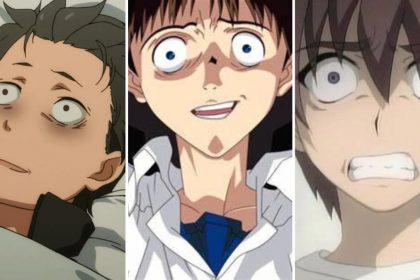Anime and manga adaptations have become a significant part of the entertainment industry, with numerous successful adaptations garnering widespread acclaim and fandoms. However, not all adaptations manage to capture the essence of the original works, leading to disappointment among fans. In this article, we will delve into the world of anime and manga adaptations, exploring the factors that contribute to their successes and failures. From faithful adaptations that bring beloved stories to life to creative expansions that breathe new life into established franchises, we will examine the intricacies of adaptation and its impact on the original works.
The Process of Adaptation
Adapting an anime or manga requires careful consideration and understanding of the source material. Successful adaptations begin with a deep dive into the world, characters, and themes of the original work. By immersing themselves in the source material, directors, writers, and producers can gain a comprehensive understanding of what made the anime or manga resonate with fans in the first place.
This understanding forms the foundation for translating the essence of the story into a new medium while retaining its core elements. Adaptation is not merely a replication; it is a process of capturing the heart and soul of the original work and presenting it in a way that resonates with both existing fans and newcomers.
Successful Anime and Manga Adaptations
A successful adaptation can take various forms, depending on the goals and intentions of the creative team. One approach is a faithful adaptation that stays true to the source material, preserving its key moments, character dynamics, and thematic elements.
These adaptations are often celebrated by fans for their ability to bring the manga or anime to life with remarkable accuracy. On the other hand, some adaptations choose to expand upon the original work creatively. These adaptations take the existing foundation and explore new storylines, characters, or themes that enhance the overall experience. While they may deviate from the source material, they provide fresh perspectives and surprises that can captivate both new and existing fans.
Further Readings: Influence of Anime in Hollywood Movies
Factors Contributing to Failed Adaptations
Not all anime and manga adaptations find success, and several factors can contribute to their failure. Poor direction and scriptwriting can result in adaptations that fail to capture the essence of the original work or convey its themes effectively.
Rushed productions, often due to tight schedules or budget constraints, can lead to subpar animation quality or inconsistent storytelling. Ignoring fan expectations can also result in disappointment, as fans have certain expectations based on their love for the source material. When an adaptation fails to meet these expectations or takes unnecessary creative liberties, it can alienate the very audience it seeks to engage.
Case Studies: Notable Successes and Failures
Examining specific case studies can provide insights into what makes an adaptation successful or unsuccessful. One notable success is “Fullmetal Alchemist: Brotherhood,” which is widely regarded as one of the best anime adaptations. The series faithfully follows the manga’s intricate storyline and complex themes while enhancing the animation and voice acting. The result is a faithful and emotionally resonant adaptation that captures the essence of the original work.
Conversely, “Dragon Ball Evolution” stands as a prominent example of a failed adaptation. The live-action film deviated significantly from the source material, resulting in a disjointed and poorly received movie. The film’s departure from the beloved characters, iconic moments, and themes of the original manga left fans disappointed and sparked widespread criticism.
The Impact of Adaptations on the Original Works
Successful adaptations can have a profound impact on the original works, both commercially and creatively. A well-executed adaptation can introduce new fans to the source material, leading to increased manga sales, anime merchandise, and overall popularity. It can also shape fan perceptions of the original work, as fans often associate their experiences with the adaptation. Theadaptation becomes a gateway to the larger world of the manga or anime, allowing fans to explore and engage with the original story in more depth.
The Role of Fandom in the Success of Anime and Manga Adaptation
The passionate and engaged fanbase plays a crucial role in the success of anime and manga adaptations. Fans invest their time, energy, and emotions into supporting their favorite works. They will help in spreading the word through social media, fan communities, and conventions. Their enthusiasm creates a buzz and generates anticipation for upcoming adaptations, attracting new viewers and readers. The power of fandom lies in its ability to create a sense of community and shared excitement, fostering a dedicated following that can propel an adaptation to new heights of success.
Questions regarding Anime and Manga adaptation
-
Why do some adaptations deviate from the source material?
While faithful adaptations are highly regarded, some adaptations choose to deviate from the source material for creative reasons. These deviations can be an opportunity to explore new ideas. Sometimes it can helps to expand the story, or offer a fresh perspective on the original work. However, striking a balance between creative freedom and honoring the essence of the source material is crucial to ensure a successful adaptation.
-
Can a successful adaptation introduce new fans to the original work?
Absolutely! A well-executed adaptation can serve as a gateway for new fans to discover the original manga or anime. When an adaptation captures the essence of the story and resonates with viewers, it piques their curiosity and motivates them to explore the source material. This can lead to a growing fanbase and increased popularity for the original work.
-
Are there instances where adaptations surpass the source material?
While it is rare, there are instances where adaptations manage to surpass the source material. Adaptations can take advantage of the visual and auditory aspects of anime to enhance the storytelling. Good adaptation can add more depth to the characters, or even improve pacing. Additionally, adaptations sometimes have the advantage of hindsight. This advantage allows them to refine and improve upon certain aspects of the original work.
-
How do studios decide which manga or anime to adapt?
The decision to adapt a particular manga or anime depends on various factors. Studios consider the popularity and commercial potential of the source material. They also consider its suitability for adaptation into a different medium. They also assess the existing fanbase and the potential for attracting new viewers or readers. Licensing agreements, production resources, and creative visions also play a role in the decision-making process.
-
What can fans do to support their favorite adaptations?
Fans can support their favorite adaptations by actively engaging with the series. This includes watching or reading the adaptation through official channels, purchasing merchandise, and spreading positive word-of-mouth. Participating in fan communities, attending events, and interacting with cast and creators through social media also helps to create a supportive and enthusiastic fanbase.













